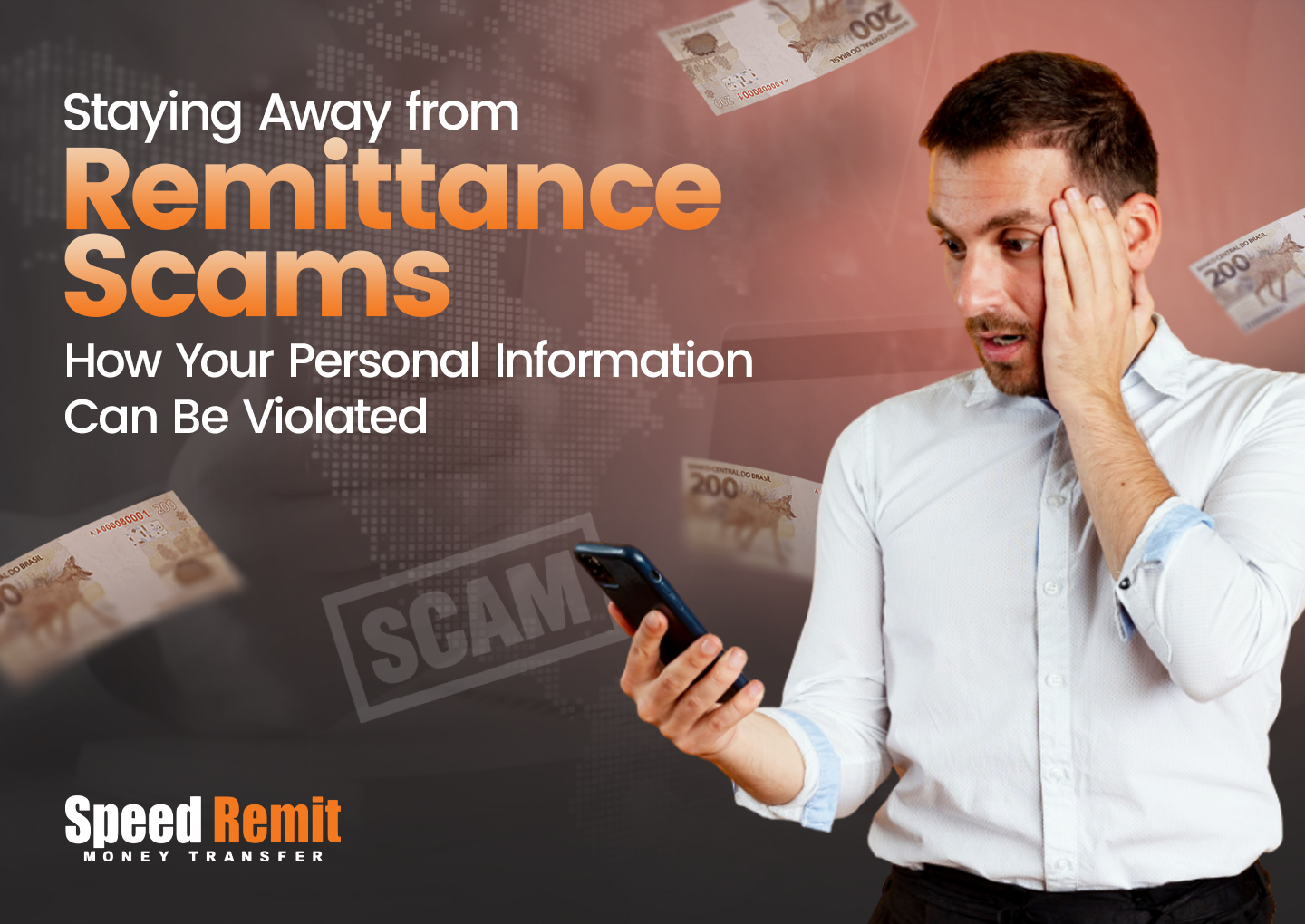In today’s digital world, sending money internationally is easier than ever, but there comes some risks with the convenience. For one who wants to send money online from Australia or any other corner, sharing personal information is a must-have. But what if you become a victim of a digital remittance scam? Do you know where your personal information goes? How did it violate? And most importantly, how can you protect your personal information? From hunting down the remittance scams to catching a reliable remittance service like Speedremit.com, every aspect is really important.
Curious to know how scammers are working to steal your personal information? Or want to find out the best remittance transfer companies in Australia? Then, you are at the right blog. Whether it’s about digital scams or top remittance companies in Australia, here you’ll explore every must-have aspect precisely. Looks interesting? Want to explore deeply? That’s great! Then, let’s start without delaying anymore.
Table of Contents
Latest Scam Trends in Australia

Australia’s cybercrime landscape has become more sophisticated. According to sources like TechRadar, Scam Watch, and Cyber.gov.au:
- Phishing & SMS/Email impersonation remains one of the top threats: fraudsters send emails or texts pretending to be trusted institutions (banks, remittance services, government agencies), asking for login info or personal data.
- Identity theft and data breaches: Personal documents like passports, driver’s licences, addresses, and DOBs are leaked or stolen and used to open fraudulent accounts. In 2025, Australia has seen high volumes of such incidents.
- Remote access and tech support scams: Scammers convince victims to install software or grant remote access, then extract confidential information from devices.
- Unverified or unregistered remittance services pose danger: If a remittance provider is not registered with the regulatory authority (like AUSTRAC in Australia), there’s a higher risk of misuse or even fraudulent schemes.
These scams often work by combining urgency (“You must act now”), impersonation, or threats (“Your account will be suspended”) to trick people into providing personal or financial info.
How Your Personal Information Can Be Violated?

Whether you are a frequent or rare remitter, sending money online safely and securely is vital. And for that, understanding how your personal information can be violated is a real game:
- Credential Theft and Phishing
You might receive a fake email or SMS that looks like it’s from a real remittance service asking you to click a link and “confirm account details.” If you do, you reveal your login, password, and possibly your identity documents. - Identity Fraud / Document Forgery
Scammers may ask for copies of passports or driver’s licences under false pretenses. If these are intercepted or misused, they can be used to open bank accounts or make transactions in your name. - Device or Software Vulnerabilities
If your device is compromised (malware, unpatched software), attackers can extract stored passwords or personal info (contacts, banking). This is a threat when using public Wi-Fi networks or downloading unverified apps. - Data Breach at Remittance Provider
If the remittance company’s systems are not secure (poor encryption, lack of multi-factor authentication, unsecured servers), databases can be hacked. Personal data such as names, addresses, transaction histories, etc., could be exposed on the dark web. - Use of Unregistered Dealers
Unregistered remittance dealers are less likely to follow strict compliance like Anti-Money Laundering (AML) laws, identity verification, or secure information handling. Using them increases risk.
How Speed Remit Fits In Your Security Concerns?
With rising threats, it’s essential to use a trusted money transfer service that takes your data protection seriously. Here’s how Speed Remit protects your personal information when you send money online through their platform:
- AUSTRAC Registration & Legal Compliance
Speed Remit is registered under Australia’s regulatory framework and complies with AML/CTF (Anti-Money Laundering/Counter-Terrorism Financing) laws. This means they must verify your identity, monitor transactions, and report suspicious behavior to authorities. - Identity Verification & Sanctions Checks
To open an account or initiate transfers, Speed Remit requires identity documents and performs compliance information checks. They also run sanctions and fraud checks to ensure no illicit activity. - Secure Data Handling
Speed Remit uses strong encryption, secure server storage, and may work with third-party verification services to confirm identity safely. This protects your data against unauthorized access. (Note: company confirms in its public “About Us / Compliance” statements.) - Real-Time Fraud Monitoring
Their systems monitor for suspicious transactions or patterns (e.g. unusually large transfers, changes in recipient details) to flag or block potential fraud. This makes sure the digital remittance process is safer. - Transparent Information Use
Speed Remit collects personal information only for necessary compliance, fraud prevention, identity verification, and legal obligations. Staff and partners involved in handling this data are bound by privacy policies and regulatory obligations.
Ways to Protect Yourself from Digital Remittance Scams:

Even though Speed Remit uses strong protections, you as a remitter also play a crucial role. To stay safe when using online remittance services, keep these best practices in mind:
- Always double-check links in emails or messages; avoid clicking “verify account now” links unless you’re certain of the source.
- Use strong passwords and enable multi-factor authentication (MFA) wherever possible.
- Never share sensitive documents unless you’re sure you’re interacting with the official site or app.
- Keep your devices updated, use trusted anti-malware tools, and avoid using public Wi-Fi for sensitive financial actions.
- Be cautious when asked to pay in advance or provide personal info for verification beyond what seems reasonable. Fraudsters may use pressure tactics.
Final Thoughts
In 2025, whether you want to explore the remittance threats or online money transfer services, every aspect is important. And for that, you not just need to be vigilant but also smart enough. From keeping yourself updated on every latest innovation to understanding how they work, every aspect plays a vital role. However, Speed Remit makes it a priority to offer secure digital remittance services for all.



